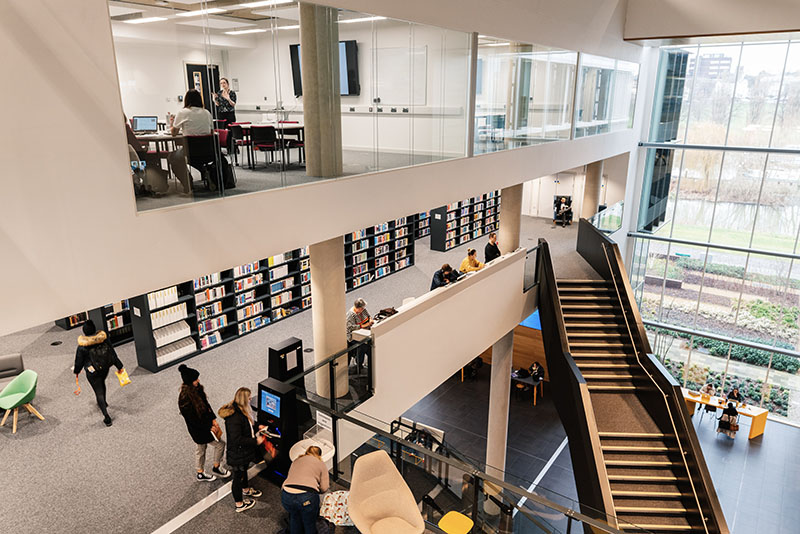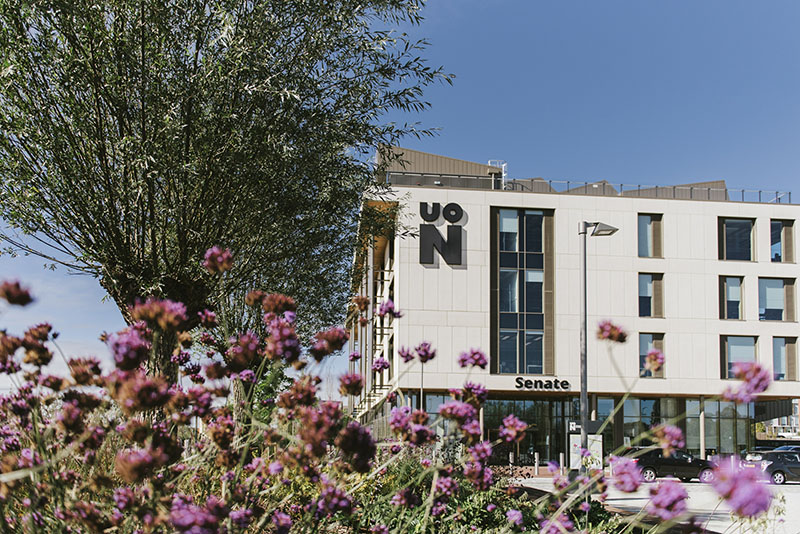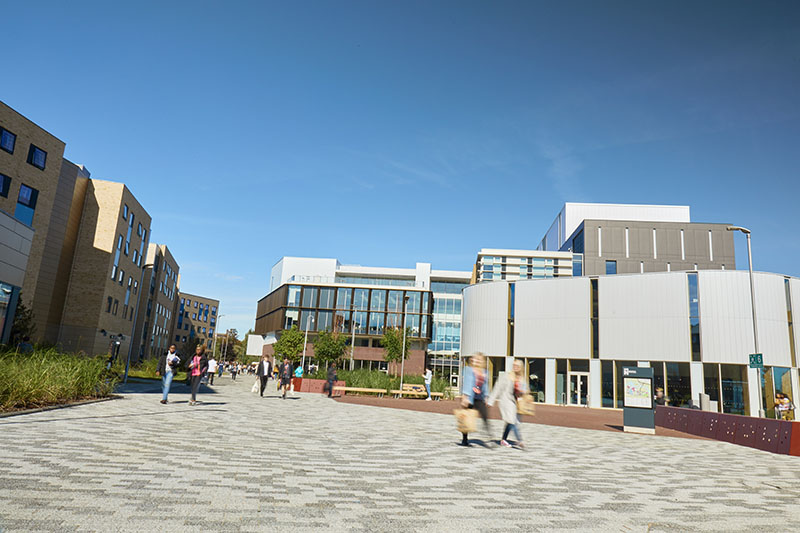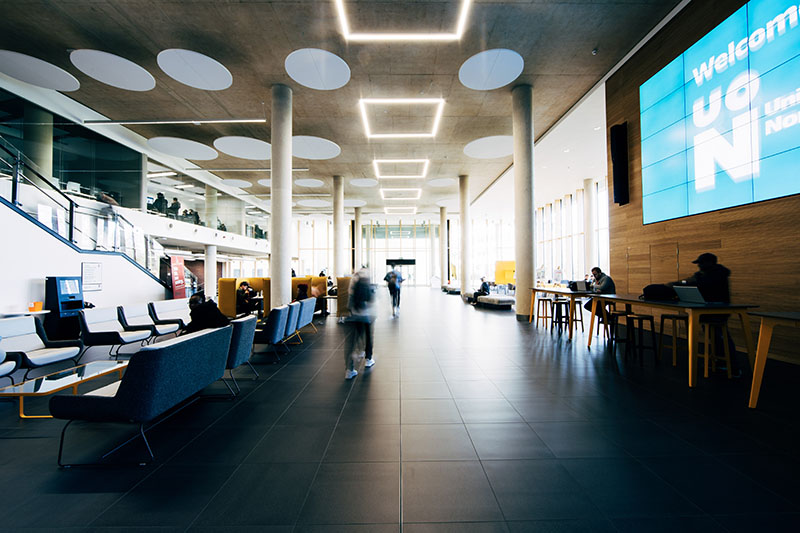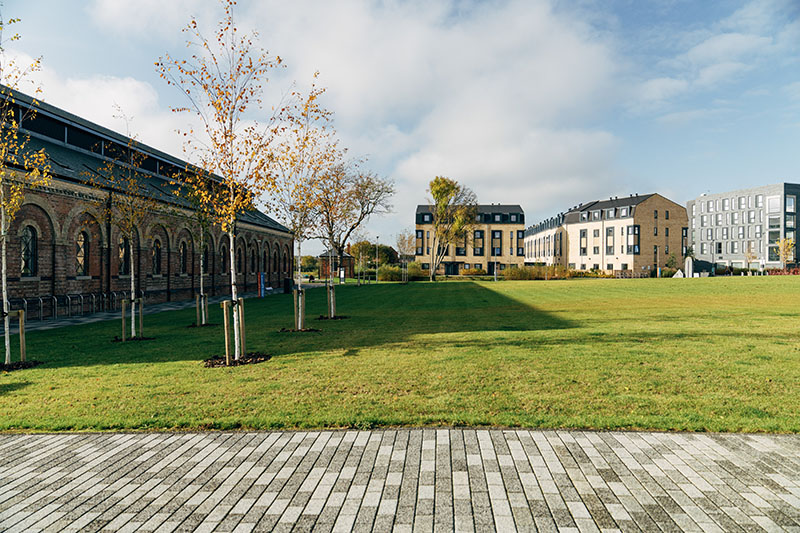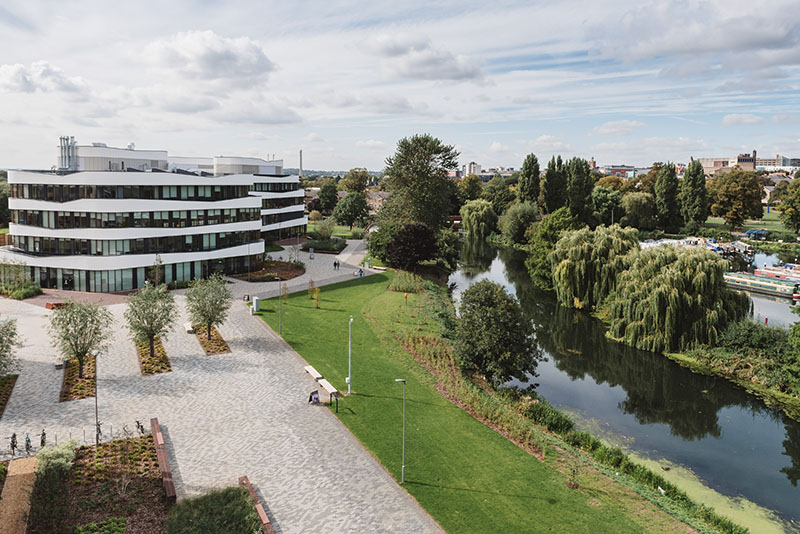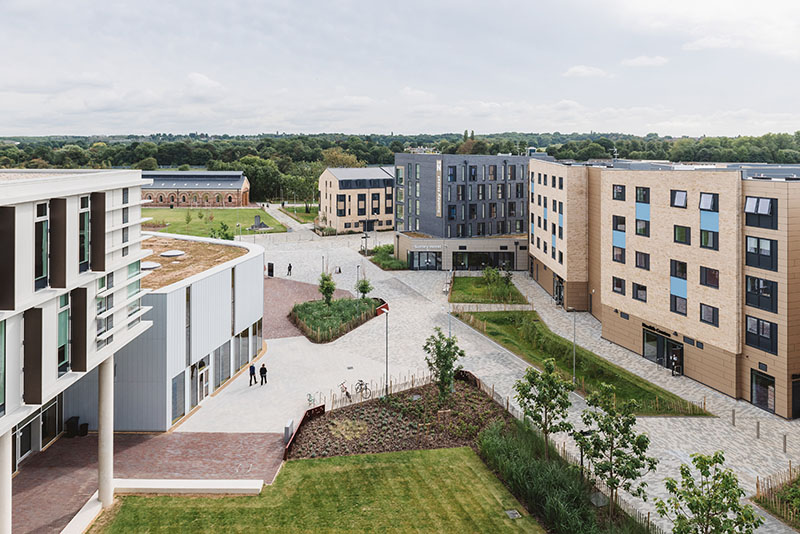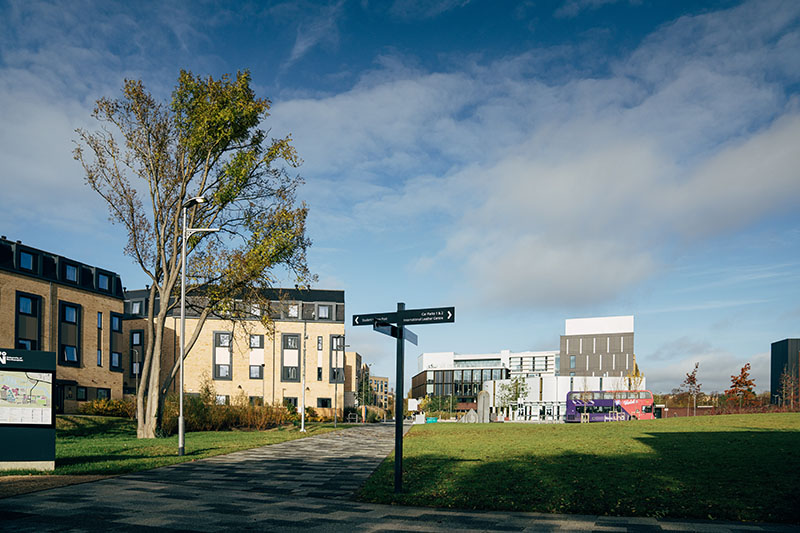
Ben Craig
Lecturer in BSc (Hons) Pre-Reg C&YP’s Nursing
Children and Young People’s Nursing BSc (Hons)
DiscoverUCAS Code
B702
Level
Undergraduate
Duration
3 years Full-time
Starting
September
BCC at A level
DMM at BTEC
Fees UK 24/25
Full Time: £9,250
Fees International 24/25
Full Time: £17,700
Location
For questions regarding study and admissions please contact us:
Our three-year children’s nursing degree gives you the ability to cope with a demanding and satisfying profession, leading to a BSc (Hons) Children and Young People’s Nursing qualification and a registration with the Nursing and Midwifery Council (NMC).
Our programme is structured to provide you with a strong foundation in nursing children and young people, equipping you with effective practical skills with a blended approach to learning. You are supported throughout the paediatric course by a dynamic, highly skilled team of tutors and practitioners within practice and beyond.
Whatever your ambitions, we’re here to help you to achieve them. We’ll support you to identify the skills you’re learning during your child nursing degree, find your strengths and secure practical experience so that when it comes to applying for jobs or further study you’ll feel confident in standing out from the crowd.
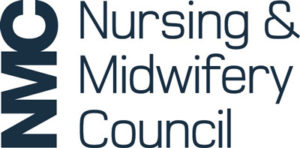
Updated 15/04/2024
Children and Young People’s Nursing offers a fulfilling career where you can provide companioned care for children and young people. As a Children and Young People’s Nurse, you have a chance to make a positive impact on the well-being of young patients, fostering and nurturing an environment that supports their health and development. Find out if the Children and Young People’s Nursing is for you.
Our three-year children’s nursing degree gives you the ability to cope with a demanding and satisfying profession, leading to a BSc (Hons) Children and Young People’s Nursing qualification and registration with the Nursing and Midwifery Council (NMC).
We offer extra student support throughout your studies and during practice, meaning you are supported by a Nursing Academic during your placement. Our University is part of a well-established, professional European network for Nursing and Midwifery*. The Florence Network* offers opportunities for future health careers and development to staff, academics and students.
From September 2019 we have been offering an exciting new curriculum based on The Nursing and Midwifery Standards for Education 2018. The curriculum is innovative utilising an active blend learning approach and an extensive range of support. The curriculum offers placement learning opportunities throughout Northamptonshire and beyond, including Europe and internationally.
Taught elements will include:
Our Children and Young People’s Nursing course is ranked 8th in the Best UK University Guardian League table (2022).
We have implemented a dedicated Mental Health First Aid (MHFA) programme to support you in managing young people’s mental health and emotional wellbeing, providing a holistic approach to nursing.
Within our new University campus, we have a purpose-built clinical ward where you can learn and develop your skills through practice-based, hands-on training. Through multiple methods of teaching, you will experience skills training that offers the most hyper-realistic manikins available which will challenge your notion of simulated realism. In addition, you can benefit from our new VR (Virtual Reality) Training system, the first to be used in undergraduate Nursing, and the latest equipment in advanced technology for simulation.
Choose to study with us and you will have the perfect combination of our experience, bespoke placements and the latest technology to prepare for this chosen career.
For more information, please view this YouTube video which explains our active blended approach.
You will be expected to study a minimum of 2,300 hours theory and 2,300 hours practice across the 3 years. The practical placements that you will take throughout this Children and Young People’s Nursing course will be in a variety of health, education and social care settings.
The practical experiences in healthcare are gained within private, voluntary and independent sector areas including social care, community trusts and hospitals within Northamptonshire, Buckinghamshire and surrounding areas.
This course is compliant with Nursing and Midwifery Council (NMC) requirements.
The University of Northampton is one of only four universities in the country to belong to the European Nursing Module. This offers the possibility of a two week placement in one of around 24 different European countries.
You can experience a different health system, culture and life experience and gain an insight into the issues that are faced in an overseas nursing environment. This opportunity is available at a specifically negotiated time during your paediatric nursing course, usually within the second or third stage of study.
Please note that you will have to meet the entire costs of this module yourself including flights, accommodation, food and travel within these countries where possible costs are kept to a minimum and financial help is available. The cost of the placement is dependent on the country you choose, it can range from approximately £500-800.
The two weeks spent overseas for this module count as placement hours as agreed with the NMC.
The University of Northampton is one of only three universities that offer this module as well as the 11 week Erasmus placement.
In addition to the European placements, we also provide the opportunity to experience nursing on an international platform. Please ask at an Open day for further information.
Please note the modules shown here relate to the academic year 23/24. The modules relating to the academic year 24/25 will be available from June 2024.
The following are essential requirements for all pre-registration BSc nursing programmes:
Applicants must be 18 years old by the 2nd month of commencing pre-registration nursing programmes and all applicants must have 10 years of consecutive education.
We welcome applications from students with a mix of A levels and BTEC/Cambridge Technical qualifications.
Please note that we may consider other qualifications not listed above on an individual basis, please contact our Admissions team to discuss these in further detail: admissions@northampton.ac.uk
All International and EU students applying for a course with us must meet the following minimum English language requirements:
For more information on the Nursing and Midwifery Council (NMC) English language entry criteria, please follow the NMC website.
For information regarding English language requirements at the University, please see our IELTS page.
Fees quoted relate to study in the Academic Year 24/25 only and may be subject to inflationary increases in future years.
Fees quoted relate to study in the Academic Year 23/24 only and may be subject to inflationary increases in future years.
Students, studying nursing, midwifery and many of the allied health professions courses from September 2020, may be eligible for a payment of at least £5,000 a year which they will not need to pay back. They may be able to apply for Financial support at the university through the NHS Learning Support Fund (NHS LSF) which offers eligible students additional support while studying for their degree. This is in addition to the Student Loan from the Student Loans Company.
Financial contribution towards your travel, and expenses in relation to your practice learning opportunities, may be available to you from the NHS Learning Support Fund. Details, including eligibility criteria, can be found on the NHS website.
The information provided above is correct for the academic year 2023/24 but please check the NHS LSF website for full details, any changes and updates.
Financial contribution towards your travel and expenses, in relation to your practice learning opportunities, may be available for you from the NHS Learning Support Fund. Details, including eligibility criteria, can be found on the NHS website.
The information provided above is correct for the academic year 2023/24 but please check the NHS LSF website for full details, any changes and updates.
For more information about possible funding options, please visit our Fees and Funding pages.
At the University of Northampton, everything we do, from funded trips to paid internships, is to give you everything you need to make a difference when you leave.
If you join our full-time Children and Young People’s Nursing degree at Northampton, you will receive a laptop when your course begins*. The laptops are built to a bespoke custom specification ideal for use in the seminar room, collaborative group work or studying at home.
Whatever your ambitions, we’re here to help you to achieve them. We’ll support you to identify the skills you’re learning during your paediatric nursing course, find your strengths and secure practical experience so that when it comes to applying for jobs or further study you’ll feel confident in standing out from the crowd. We’ve created the Northampton Employment Promise because we are so confident that if you focus on your studies and complete one of our awards you’ll be highly employable by the time you graduate. Putting you in a great position to secure employment or continue your studies.
To check out the full list of perks, visit our Student Perks page or dedicated International Perks page.
* UK fee payers only (see Terms and Conditions for further details)
The nursing skills labs, based at our Waterside campus, are used throughout the studies to enhance learning in the clinical settings. The Nursing Skills labs have a purpose-built clinical ward where students can learn and develop their clinical skills through practice-based, hands-on education. You will practise scenarios from a real-life hospital ward in a realistic, yet safe clinical environment.
The fully interactive VR (Virtual Reality) system and mannequins allow students to ‘treat’ people in a variety of nursing settings, giving them ‘as close to real-life as possible’ training. This includes actual conversations with the characters in the scenario and gives clinical feedback that is matched to the student’s learning objectives.
Some of the activities you may be involved in while studying for a children’s nursing degree include:
Our children’s nurse degree is split equally between practical placements and taught sessions on campus. Each module has specific time dedicated to face-to-face teaching and self-directed study.
There is approximately 90 hours of face-to-face teaching in the first year of the nursing children and young people course, this is reduced each year allowing you to become more confident in your knowledge and to hone your study techniques. You will be required to complete preliminary work for your sessions, much of this work will be facilitated through our virtual learning environment (NILE).
From September 2019 we are offering an exciting new curriculum based on The Nursing and Midwifery standards for education 2018. The curriculum is innovative utilising an active blend learning approach and an extensive range of support is always available. The curriculum also offers placement learning opportunities throughout Northamptonshire and beyond.
You will be continuously assessed throughout this children’s nurse course to test your knowledge. Placements will also be assessed to ensure that you can effectively apply theory into practice within a healthcare environment.
"This placement was a real benefit as it provided me with the opportunity to communicate with children, to learn about how their health needs and lifestyle choices affect their daily lives, how they manage conflict, persevere through challenges and their relationships with others." - Zainab Bundu -
Lecturer in BSc (Hons) Pre-Reg C&YP’s Nursing
Children and Young People’s Nursing BSc (Hons)
DiscoverSenior Lecturer - Childrens Nursing
Faculty of Health, Education and Society
DiscoverSenior Lecturer - Childrens Nursing
Faculty of Health, Education and Society
DiscoverSenior Lecturer - Childrens Nursing
Faculty of Health, Education and Society
DiscoverSenior Lecturer - Childrens Nursing
Faculty of Health, Education and Society
DiscoverThere are many avenues you can choose once you are registered as a children and young people’s nurse on the Nursing and Midwifery Council (NMC) register. You can choose to work in acute settings such as: a children’s ward, children’s emergency department, theatres, neonates.
Alternatively, you may choose to work in the community as: a health visitor, school nurse, community children’s nurse, within a special educational needs school.
There are many other specialist roles within children and young people’s nursing too such as: children and adolescent mental health service, research nurse, intensive care, and clinical nurse specialist.
For further information on the range of careers and opportunities available within healthcare, visit the NHS careers website or take the NHS Career quiz to discover what professions best suit you.
Our postgraduate courses are a great way to enhance the skills you have already learnt. Benefit from our 20% alumni discount on Master’s fees to give you a CV that will catch the eye of employers.
Successful completion of this course could lead on to one of our postgraduate programmes: PGDip Specialist Community Public Health Nursing, MSc Specialist Community Public Health Nursing (Top-Up), MSc Public Health, MSc Advancing Practice, MSc Advanced Clinical Practice.
At the University of Northampton, we offer a range of short courses and continuing professional development (CPD) programmes. These will enable you to learn new skills, progress into specialisms or take on new responsibilities.
In this news story, nursing students Stanley, Matthew, Alex, Anson and Mathew discuss why they love Children and Young People’s Nursing and what men can bring to the profession.
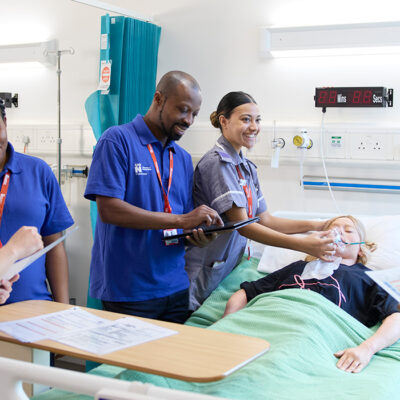
Our nursing course will give you the ability to cope with a demanding and satisfying profession leading to BSc Adult Nursing (Hons) and registration with the NMC.
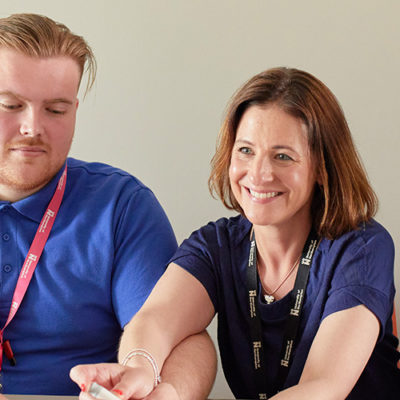
Our course course will develop your understanding of the needs of people with learning disabilities to enable you to work in a range of settings in health and social care.
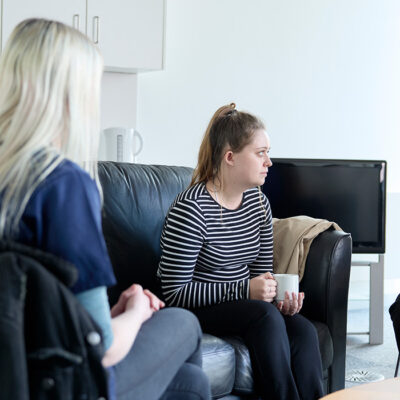
See the service from the patient’s perspective and learn how you can make positive changes through evidence-based knowledge and practical skills. Apply now
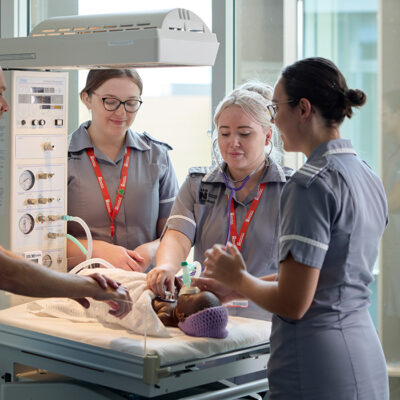
Midwifery is a rewarding and unique career, that will allow you to be in the privileged position of working closely with women and families during pregnancy and childbirth.
